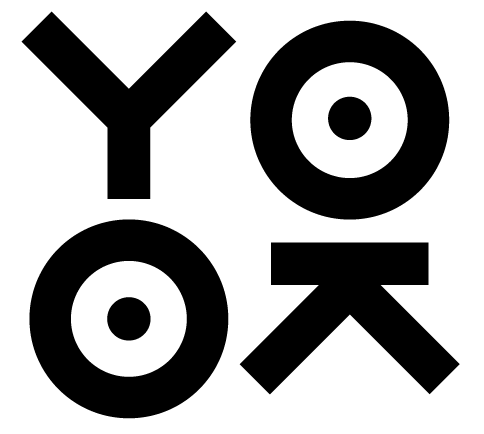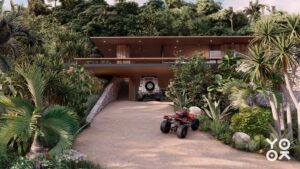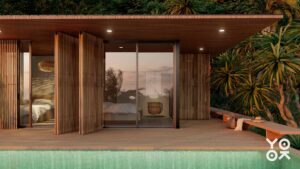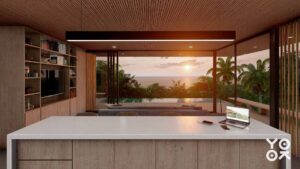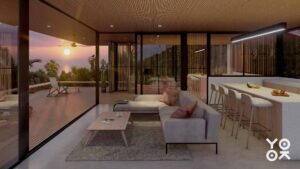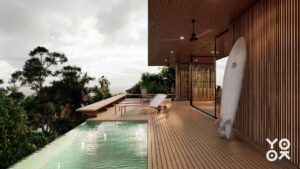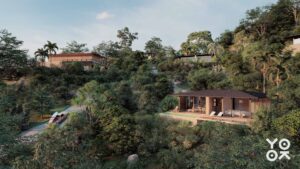Undoubtedly, you have become familiar with the hot topic of “sustainability”, as the world currently finds itself in a pivotal moment of either incredible or catastrophic potential. Humanity stands at a crossroads, with almost every aspect of existence being called into question. Do we really want to “sustain” this current dynamic? We are facing challenges at the intersections of poverty, health, greed, inequity, and climate change. It is a time of great suffering and devastation, however, there is also great hope and excitement as innovation and creativity emerge to find new solutions.
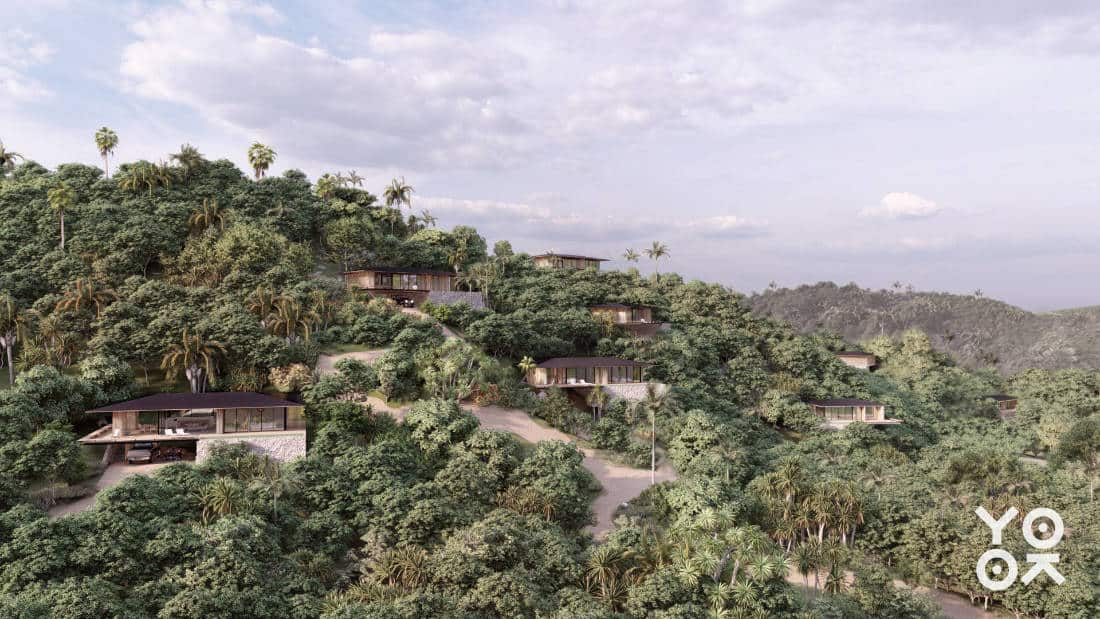
The reality is that “sustainability” is no longer enough on its own. In recent years, the term Anthropocene has been used to describe this modern period, during which human activity has been the dominant influence on both climate and the environment. During this time, humans have become entitled to all that the planet offers. In fact, we now call nature “natural resources” for our own exploitation. After having pillaged the Earth of most of its resources, there is too little left to sustain. Now, we must shift our approach towards regeneration instead. What is the difference, you may wonder?
By definition, sustainability is the avoidance of the depletion of natural resources in order to maintain an ecological balance, whereas regeneration is the renewal or restoration of a body or biological system (such as a forest) after injury or as a normal process.
Regeneration builds capacity, while sustainability maintains it – at best. Regeneration allows us to take something depleted and bring it back to life. This concept is key to the survival of the human species and must be woven into all aspects of our world moving forward. As Buckminster Fuller says, “You never change things by fighting the existing reality. To change something, build a new model that makes the existing model obsolete.” Let’s consider how this is possible.

Regenerative Development
Medard Gabel, former colleague of Buckminster Fuller, describes regenerative development as “the use of resources to improve society’s well-being in a way that builds the capacity of the support systems needed for future growth.”
Through this unique approach, development takes on an entirely new potential of enhancing, instead of depleting or simply sustaining the mediocre circumstances that already exist. It is a practice not only aligned with nature, but aligned with the well-being of everyone and everything. Regeneration can be applied across all development sectors, although it requires one to think widely outside of the box.
Regenerative development for Yoko Village means that we will enhance the local land, the local community and the lives of our team and investors. It means that, every step of the way, we will consider the big picture and the long term effects. Our design team is working diligently to build our communities mindfully and in alignment with the natural topography and resources. This core intention affects everything that we do, from the materials that we choose, to the layout of the villas on the land, to the selection of local and appropriate vegetation in the gardens.
Yes, we are doing business. However, we are looking beyond the current reality to envision a new way of doing business. One that not only respects the Earth and its life-supporting systems, but that enhances them, ensuring that the next generation’s world is richer than ours in every way possible.

Regenerative Economics
The core concept of regeneration must be guided by nature and her systems. The natural flow of life and growth on this planet is organically regenerative and, although we can utilize the advancements of modern technology as tools for the new world, nature will be our greatest guide.
Interestingly, this concept can even be applied to economics. According to a groundbreaking paper, published by John Fullerton in 2015, regenerative economics has eight key principles.
1. In Right Relationship
Humans are only one part of a deeply connected web of life on this planet, and anything that affects one part of that web actually affects the entire web. Although nature is often framed as competitive, in reality it is cooperative. In the world of business, this means that we understand that we can leave the world a better place than it was when we started — and do so profitably — turning business into a force of good and a powerful ally in solving global issues.
2. Views Wealth Holistically
Wealth is much more than just money. Holistic wealth considers the well being of the whole, and requires harmonization across all areas of capital. In terms of the economy, this means that we consider financial wealth alongside human wealth (happiness, health, etc), cultural wealth (diversity, empowerment, etc), and natural wealth (positive impact on the planet that we depend on to survive). Holistic wealth provides much more fulfillment than money alone.
3. Innovative, Adaptive, Responsive
In a world that is changing more rapidly than ever, economic success must consider and allow flexibility and adaptation. The human species has never known a world like this before, so new and creative solutions are needed. Mother Nature offers plenty of examples of flora and fauna that have adapted to suit modern circumstances. Just as Darwin observed, the most “fit” will survive. However, he did not mean “fit” in terms of fitness, he actually meant “fit” as in the one that is most adaptable to a changing environment. This can easily be applied to business – think outside of the box.
4. Empowered Participation
A healthy human economy depends upon the empowered participation of everyone, negotiating in their own enlightened self-interest as they naturally support the health of the whole. This brings us back to the concept of cooperation, emphasizing that successful cooperation is beneficial not just for the parties involved, but for the entire system. In business this could look like decentralized leadership, but must focus on giving a voice to the collective.

5. Honors Community and Place
Undeniably, each locality is unique and has been shaped by long-term pressures of geography, human history, culture, local environment, and changing human needs. For the greatest success and resilience, inhabitants of the locality must adapt to its unique qualities. In terms of business, this relates to being stewards of the land where we are, listening to those who hold indigenous knowledge of the land, and doing everything possible to contribute positively to the local community and environment.
6. Edge Effect Abundance
This principle highlights that, fundamentally, nature thrives the most where there is the most diversity. While the central area of a specific ecosystem is buffered from the influence of other ecosystems, at the edge where the two ecosystems meet there is a wealth of potential. This is where we find the greatest potential for innovation and cross-fertilization. In terms of economics, this means that we must reach out to and include the most distant voices and perspectives to make us stronger as a whole unit. Diversity helps to make more informed decisions, leads to greater creativity, and fosters an environment of respect.
7. Robust Circulatory Flow
A regenerative economy mimics the metabolic process found in resilient living systems. That which is initially discarded as waste, is taken up in an ongoing, productive, circulatory, and value-enhancing flow. Essentially, in nature there is no waste. For a business, having their product life cycle be a circular loop as opposed to a one way street that dead ends in a landfill is essential. However, this concept is applied not just to actual material waste, but also speaks to the cyclical flow of information and money as well.
8. Seeks Balance
Balance is absolutely imperative to systemic health. A regenerative economy seeks to balance: efficiency and resilience; collaboration and competition; diversity and coherence; and the needs of small, medium, and large organizations. When these considerations are made, business can indeed be a force that helps social, ecological, and economic systems operate in harmony.
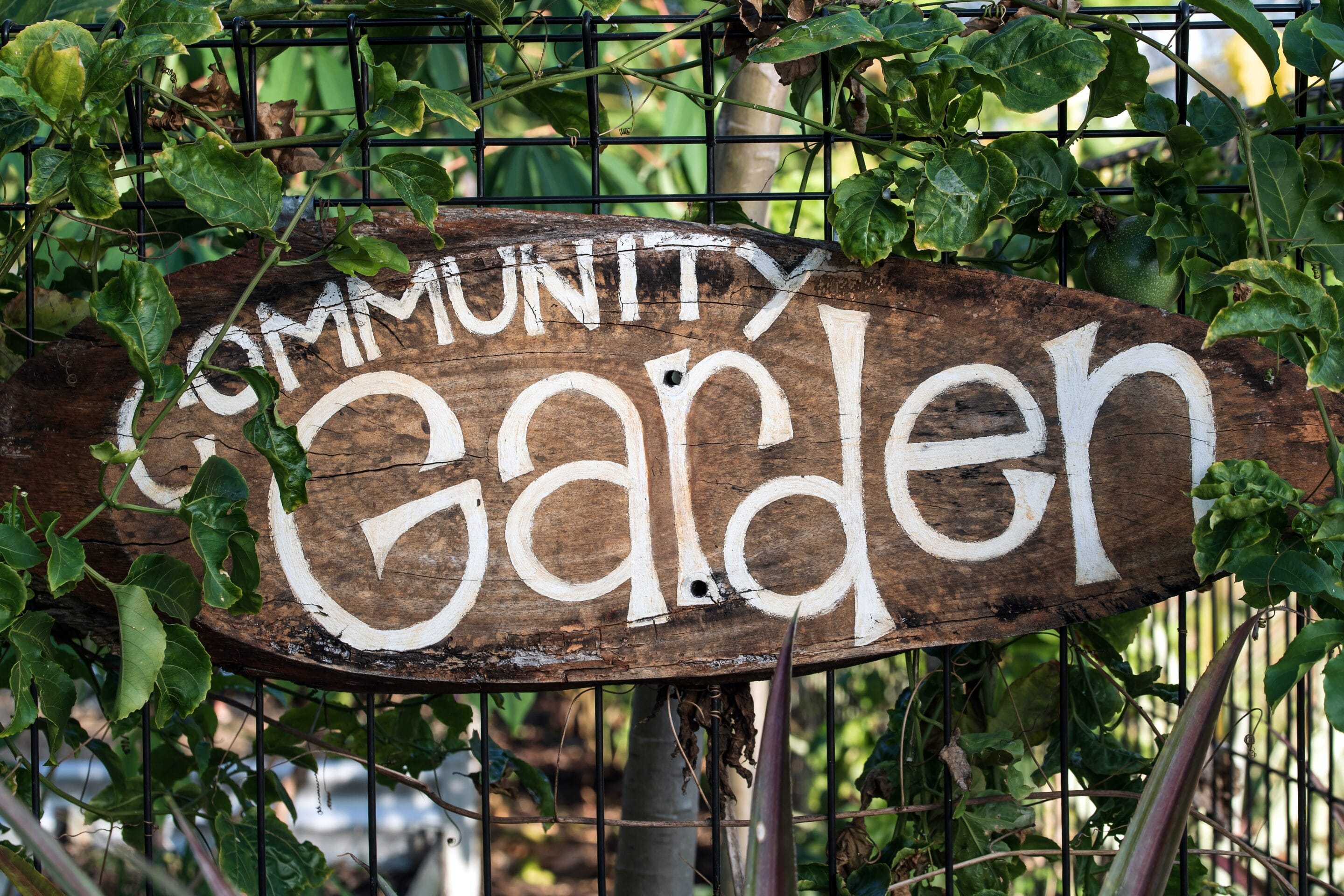
Regenerative Communities
Regenerative communities go beyond sustainable living. Through this cooperative approach, all life is dynamically renewed and replenished. There is mutual benefit across the local ecosystem and all local populations thrive as a result.
For Yoko Village, this is the foundation of our business. As stewards of the land that we develop, we have much to consider and we recognize that we cannot do it alone. For that reason, we have hired a team of experts who can guide us. With the help of this team, we are reimagining how a human shelter can be in greater harmony with the land that surrounds it. We are thrilled about structures that allow us to live with nature, instead of isolated away from it. We are learning about soil nutrition and water retention. The team is getting creative in our development of waste management systems and water sources. We are planting vegetation not just for its beauty, but also with consideration to how we can move closer to food sovereignty in our communities. With permaculture, we shift away from the industrial approach of monocropping, and instead create a network of plants and nutrients to bring balance to the land.
Fundamentally, Yoko Village will be a model of regeneration – a system that not only benefits the top players in the community, but one that allows wealth and prosperity of all kinds for all. Thankfully, Costa Rica’s ecological and political circumstances make it an ideal location for regenerative communities to thrive.
If being a part of this kind of community appeals to you, or perhaps you feel that you have unique knowledge that could be valuable to our projects, please reach out to schedule a call with our team.
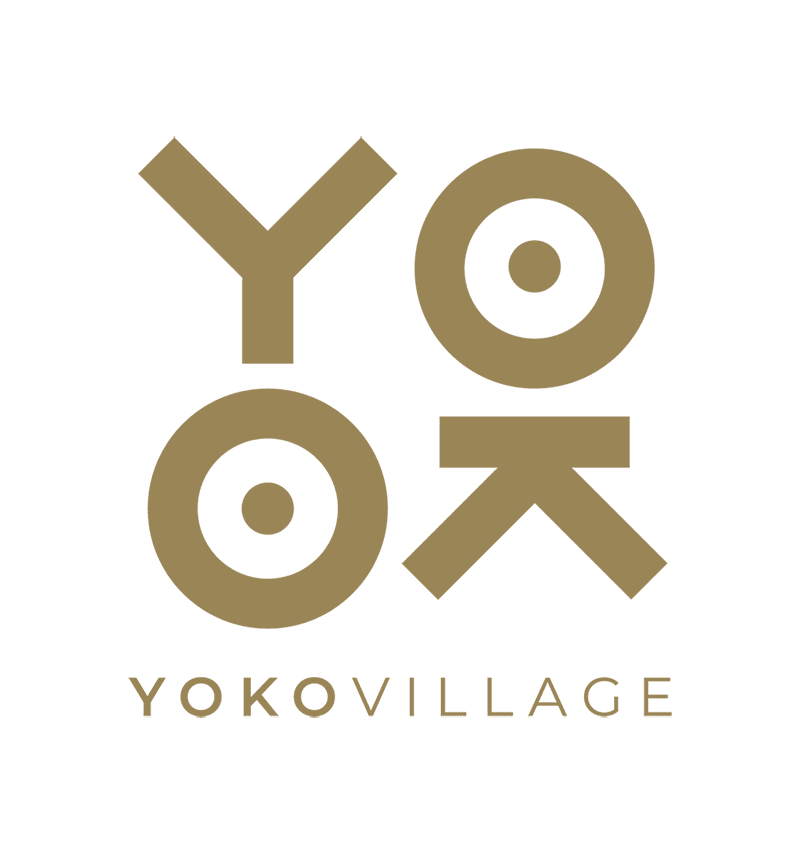
Follow our events on our Facebook and Instagram pages to stay up to date on what we are doing in the community. As always, reach out to us if you have any questions or want to schedule a call with us. Stay tuned for more exciting developments happening at Yoko Village!
